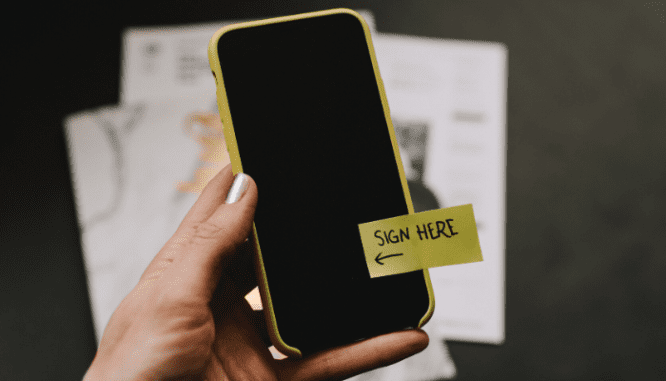How to Handle Home Inspection Hurdles Brought on By Coronavirus
- Published on
- 5 min read
-
 Amanda Lynch Contributing AuthorClose
Amanda Lynch Contributing AuthorClose Amanda Lynch Contributing Author
Amanda Lynch Contributing AuthorAmanda Lynch holds a BA in Professional Writing & Editing, with a portfolio including major national brands such as Walmart. She kicked off her career as a corporate blogger for a national exterior remodeling company in 2011. Today, Amanda aims to write extraordinary content that engages and delights. She resides near Cleveland, Ohio.
As coronavirus complicates the real estate business in many ways, home inspections are one step that may be putting a monkey wrench in your transactions.
Here’s the trouble: Sellers are naturally uncertain about allowing anyone — inspectors included — inside their homes. Furthermore, stay-at-home orders can make it difficult, if not impossible, to meet contractual obligations related to home inspections and repairs on a certain timeline. And the choice to ignore these orders can result in fines, delays, stressed-out clients, and more.
The landscape is rapidly changing with coronavirus, and one thing that’s for sure is that nearly everyone must adapt. This includes how to approach home inspections, especially since they are traditionally the most common contract contingency. In this article, we ask three experienced agents to give tips on how to handle home inspections during coronavirus, in a way that benefits everyone involved.

Get familiar with local ordinances related to coronavirus
The first consideration is awareness of your specific state’s stay-at-home-order (or lack thereof). These orders constantly change from day-to-day. For example, New York put a stop on real estate amidst COVID-19, only to reclassify it as an essential business on April 2, 2020.
Real estate is an essential business in some states but not in others. It becomes more complex when some metro areas consider real estate essential but other metros in the same state do not.
Jason Huerkamp, a top agent in Minneapolis, gives his insight on how to stay on top of local orders: “I would rely heavily on your broker, your local board, and in addition to that, your local health department.”
Furthermore, each state’s government website has information regarding essential businesses. You might find this in the form of a press release or a set of listed criteria. It differs from state to state.
Consequences of noncompliance also vary from state to state. For example, in Pennsylvania, businesses that refuse to cease operation can:
- Face fines
- License suspension
- Citations
- Forfeit ability to receive disaster relief
- Termination of state loans
- Termination of grant funding
If real estate is non-essential in your area, home inspections may come to a halt along with it. Home inspections may also be classified under a different category — such as “Public Works” — so you may need to check multiple sets of rules. If you can carry on with real estate business, including inspections, in your area, the next consideration is social distancing for home inspections, which is essential to all parties involved.
Home inspection precautions and minimizing contact
Home inspections take an average of 2 to 3 hours. Under normal circumstances, agents may encourage the buyer to be present — but not during a home inspection amid coronavirus.
“In Minnesota, you would see the buyers [at the inspection], the inspector, and the buyers might bring mom and dad at the very end, or for the whole inspection which is 3 hours,” says Huerkamp. “99% of the time you are hiring a professional to do the inspection. Let that inspector go by themselves and do the inspection, then give you a report on the house and areas that are of concern.”
For buyers who feel they must be present at the inspection, Heurkamp gives the following advice:
“It’s no different than taking your car to get inspected at your local mechanic. You typically aren’t going with the mechanic and looking at all of the issues. Home inspectors take detailed photos of issues, so there is really no reason that the buyer needs to be at the inspection due to the circumstances.”
Troy Walseth and Wendy Lockhart, top agents and business partners serving Seminole, Florida and the Gulf Beaches, weigh in on how they handle home inspections during coronavirus:
“Inspectors ask if the sellers or agents are going to be there because they would like to walk through on their own,” says Walseth. “We aren’t shaking hands, we keep our distance, but it’s necessary to keep the ball moving forward.”
Walseth currently goes to home inspections since they are still allowed in his area and he wants to represent his clients.
However, he abides by the CDC’s social distancing recommendations.
“I unlock everything, turn the lights on, introduce myself from 6 feet away, and say I am going to be on the patio if you have any questions,” says Walseth. “We definitely stay out of the way.”

How to communicate with buyers, sellers, and inspectors about COVID-19
Sellers might feel nervous to allow an inspector to enter their home, especially since extended family should even stay away.
There are several steps and precautions to take to protect the health of buyers and sellers and provide peace of mind.
If your client is a buyer:
- Ensure that the client understands why they cannot attend the home inspection. Social distancing laws mandated by each state may only allow the inspector in the home, or perhaps the inspector and the agent. It’s for the protection and safety of the buyer to not be present during the inspection.
- Assure the client that any and all findings are documented by the inspector. Inspectors take detailed photos and write reports of their findings, so they will know exactly what happens during the process.
- If the inspector is willing, perhaps arrange a FaceTime call or phone call where the buyers can ask questions after the inspection is finished.
If your client is a seller:
- Explain to the seller that you will not be attending the inspection unless it’s an absolute must. Agents may sit in their car for the period of the inspection or somewhere outside if the weather is nice.
- Have the client consider the rules they want to provide for the inspector. They can request for the inspector to wear masks or full gear when entering the home.
- Have the seller plan to leave the premises while the inspector works. The process takes two-to-three hours, so perhaps encourage the seller to get some fresh air for a while. They can also tend to some yard work as long as they give the inspector plenty of space.
When you communicate with the inspector:
- Ask the inspector in advance on how they plan to prepare to inspect the home in light of COVID-19, including additional precautions. Ideally, they should bring their own protective gear and hand sanitizer. They should also mention the importance of social distancing and request how many people they want in the home, or if they want the agent present.
- Allow only the inspector to enter the home with the homeowner keeping at least 6’ distance if they are home.
- If non-essential people are present during the inspection, the inspector may reschedule. The sellers may have to vacate the premises during the inspection entirely.
- Ask the inspector to wash their hands, especially after the inspection of the kitchen and each bathroom.
- Prepare to supply the inspector with hand soap and water, as well as hand sanitizer or Clorox wipes if you are able. Many inspectors might bring their own, especially if they undergo certification such as InterNACHI’s COVID-19 Safety Guidelines for Home Inspectors and Contractors.
- Prepare to wipe off doorknobs and other high-touch areas with sanitizing wipes. Ask the inspector to do this as he or she leaves from room to room.
- Home inspectors may wear masks (during non-COVID times) to crawl into attic spaces. They may have N-95 masks on hand to keep out attic dust, but they are also ideal for use during the coronavirus outbreak. The inspector may opt to wear the mask during the entire inspection, as an N-95 mask is most effective for capturing droplets that may contain coronavirus.
- Require the inspector to wear crawl space gear in the house. This is an entire suit with a mask.
While these approaches can help bring peace of mind to all parties, what happens if the home inspection isn’t allowed at all?
With this unique and uncertain situation, our three agents weigh in on possible solutions.
Workarounds to postponed home inspections
On a case-by-case basis, delays in home inspections won’t necessarily become deal-breakers. Some creative thinking can go a long way along with contract extension options.
“Should we start having the sellers do their own pre-inspection?” suggests Lockhart. “Maybe the seller is the one that calls in, or maybe we just have major systems inspected like the AC, can we get just the roof looked at, and do those types of things. I guess that would depend on the detail of the regulation.”
“A couple of other factors play into this,” Walseth adds. “In Florida, you have to get what’s called the 4-point inspection. If you don’t, you can’t get insurance. So passing the 4-point is what allows you to have insurance, and without insurance, you can’t get a loan.”
Walseth notes it will be difficult to forego the inspection entirely, as many buyers view it as a highly important part of the process.
How can pre-listing inspections help prevent coronavirus roadblocks?
A pre-listing inspection can help speed up the process of selling a home, especially if the home is on the older side. The pre-listing inspection can help in the following ways:
- It can give buyers peace of mind that the seller wants the home in good condition.
- It allows the seller to make the buyer aware of potential problems before they go under contract.
- It will allow sellers to make repairs or replacements that are within their control during the coronavirus outbreak.
- It can help the seller and agent create a game plan in advance if there are problems with the home.
Know that the buyer’s inspector may always find something different than the original inspector. However, the idea is that a pre-inspection can keep you a step ahead during the coronavirus outbreak.

Add a coronavirus addendum to the contract
During a typical home inspection, a buyer may request the seller to make repairs before they agree to purchase the home within a certain time frame, such as 30 or 60 days.
However, a coronavirus addendum tacked on to the contract can add some flexibility around the transaction in general, including the home inspection itself and any repair requests that may follow, during these uncertain times.
Specific addenda may consider the inability for the seller to access services from other persons or entities in relation to the COVID-19 pandemic. This may apply to hiring an inspector as well as professional contractors who’d be called on to make repairs.
Note that some repairs and replacements may still be feasible to complete. For example, window and roofing companies across the country are offering no-contact estimates during COVID-19.
If the repair is not possible, the seller may consider reducing the price of the home to offset the cost and the buyer can repair it later. They may also add a clause stating a future date for repairs with the understanding that an extension can be made if both parties agree.
Even with an addendum in place, there is no guarantee that the deal will still close. “It’s a case by case basis, depending on what [the buyers’ and sellers’] needs are,” says Walseth.
“Also, how good the offer is, probably,” says Lockart. “If you’ve got a really, really good price for it and the buyers are solid, you might want to give them 30 or 60 days. If you need to sell it sooner, you wouldn’t accept [an extension].”
Just like everything else with COVID-19, we must take home inspections a day at a time and be flexible with each situation. What works one day may not work the next. Keep an open mind with options on the table for your clients, and prepare for the possibility to change plans at a moment’s notice.
Header Image Source; (MBLifestyle / Shutterstock)
